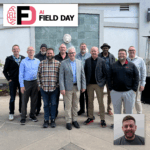|
|
This video is part of the appearance, “HYCU Presents at AI Field Day 7“. It was recorded as part of AI Field Day 7 at 8:00-9:30 on October 29, 2025.
Watch on YouTube
Watch on Vimeo
In his presentation at AI Field Day 7, Sathya Sankaran, Head of Cloud Products at HYCU, emphasizes the importance of protecting the data and infrastructure that underpin AI systems. He highlights that while much of the AI conversation tends to focus on GPUs and models, the foundational data that fuels AI often lacks comprehensive protection. During AI implementation, vast and varied datasets are generated, modified, and analyzed—through data lakes, object storage, and lakehouses—posing significant challenges in maintaining consistency, accuracy, and recoverability. Sankaran underscores that much of this data resides in the cloud, making cloud the “home of AI,” but also introduces new threats due to fragmented services, inefficiencies, and blind spots in current protection measures.
HYCU aims to solve these challenges by offering broad and deep coverage across diverse cloud workloads, ensuring consistent and meaningful backup and recovery. Unlike traditional backup solutions that may not cater to AI-specific workflows or protect more than raw data, HYCU’s platform captures the entire ecosystem, including metadata, views, access policies, and AI-specific formats such as enriched JSON and vector databases. This level of comprehensive protection enables traceability and rollback capabilities for AI pipelines, which are critical when dealing with issues like schema drift, corrupted data, or poisoned datasets. HYCU’s approach involves aligning backups with stages like model training checkpoints, and doing so in a way that maintains consistency across fragmented and asynchronous data processes.
Adding to this, HYCU’s partnership with Dell and use of deduplication technologies such as DD Boost make backing up even large-scale AI data cost-effective and cloud-resilient. Their solution minimizes storage use and egress costs by identifying and transferring only changed data segments, often achieving up to 40:1 savings. This also supports cross-cloud backups, offering organizations flexibility and protection from vendor lock-in or catastrophic cloud failures. Ultimately, HYCU positions itself as an essential component in modern AI architecture by centralizing protection, enabling long-term recoverability, and reducing operational risk, all while keeping pace with the rapidly evolving landscape of AI workloads.
Personnel: Sathya Sankaran








